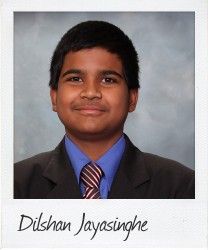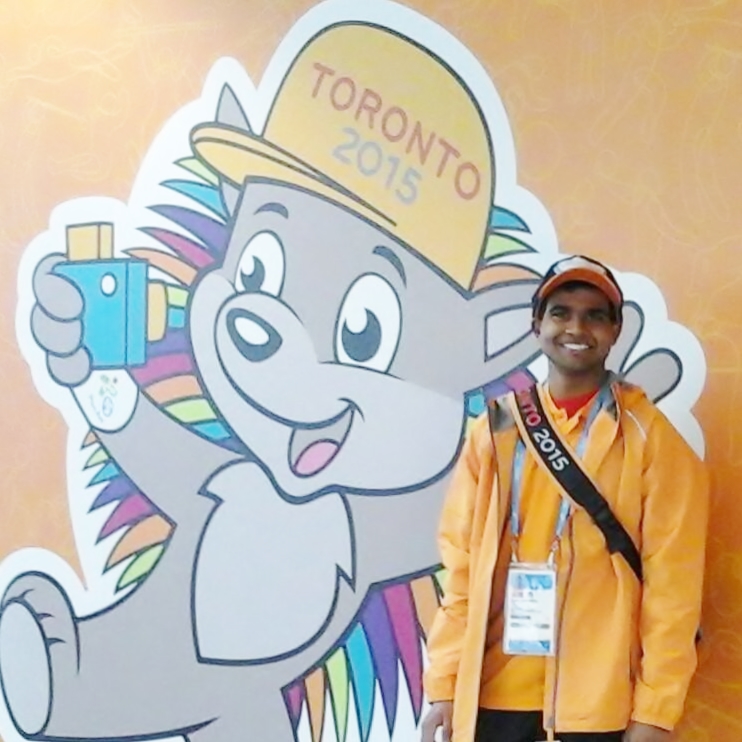“International sports promote fellowship”
September 4th, 2015 Getting involved in the recent PanAmerican Games gave Dilshan Jayasinghe, 18, a Commonwealth Correspondent from Mississauga, Canada, opportunity to discover how an international sports competition means more than just new facilities and extravagant ceremonies.
Getting involved in the recent PanAmerican Games gave Dilshan Jayasinghe, 18, a Commonwealth Correspondent from Mississauga, Canada, opportunity to discover how an international sports competition means more than just new facilities and extravagant ceremonies.
Recently I volunteered with the PanAm and Para PanAm Games in Toronto. There have been many debates as to why such international games are important to a city, especially in light of high costs involved in the preparation and hosting of the games. My experience showed that games are important to our society. I base my assertion on the following observations and experiences.
Games, be it PanAm, Olympics, or Commonwealth, are among the few opportunities where people from various countries are brought together. While the premise of the games are of competition, the important thing I found was the fellowship that comes from such games, which ultimately helps toward better understanding of each other. This understanding contributes to a more cohesive approach to global issues and concerns that affect us all. Athletes, participants, and stakeholders of the respective games all have the capacity and potential to be goodwill ambassadors, not only in their local communities but also throughout the world.
Para games, where differently-abled athletes with physical challenges compete at international level, highlight the need for infrastructure to be built so that it is accessible to all. Public and social policies which facilitate inclusiveness can be a lasting derivative of such games. Hosting the Para PanAm games also gives an opportunity for all of us to strive towards our ideals, whatever they are, be it sports or otherwise. The games could be a stimulus for everyone in the current and future generations, in the journey of human spirit, fellowship and achievement.
The structures and facilities that the host city builds for the games can be used time and again to train future athletes. Sound infrastructure, once it is built, can be utilised as part of comprehensive urban and community planning. Therefore, rather than looking at the games as a prohibitive cost, the event should be looked as part of a long term strategy for infrastructure and community development. As seen in Toronto’s recent games, private and public partnerships can and should be fostered. With astute planning and management, games can be organised and run in a cost effective manner.
The games also lead to the host and neighbouring communities becoming more involved in planning and special events. With inclusive participation of all stakeholders, the hosting city or cities can use the games to promote constructive community engagement. This engagement – in planning, designing facilities for community use when the games are over, and in training volunteers – have the potential to lead and foster a more holistic approach toward sustainable development of resources and community building.
The attributes I have mentioned are some that I believe are positive aspects of international games and the resulting fellowship in sports.
Photo: courtesy of Dilshan Jayasinghe
…………………………………………………………………………………………………………………
About me: I live in Mississauga, Ontario, Canada. This fall I started my studies at the University of Guelph, Humber in Toronto, Canada with the aim of being an accountant as my career.
I am the Program Officer of the International Youth Council, Mississauga Chapter. During my spare time I am very involved in community activities, be it local or global.
…………………………………………………………………………………………………………………
Opinions expressed in this article are those of the author and do not necessarily represent the views of the Commonwealth Youth Programme. Articles are published in a spirit of dialogue, respect and understanding. If you disagree, why not submit a response?
To learn more about becoming a Commonwealth Correspondent please visit: http://www.yourcommonwealth.org/submit-articles/
…………………………………………………………………………………………………………………




